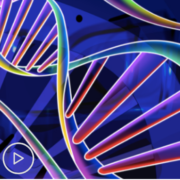Is AML Genetic?
Dr. Daniel Pollyea discusses the relationship between acute myeloid leukemia (AML) and genetics and addresses if the disease could be inherited within a family.
Dr. Daniel Pollyea is Clinical Director of Leukemia Services in the Division of Medical Oncology, Hematologic Malignancies and Blood and Marrow Transplant at University of Colorado Cancer Center.
Related Resources
|
|
Predictive (Familial) Genetic Testing vs. Cancer Genetic Testing: What’s the Difference? |
Transcript:
Dr. Pollyea:
So, this is a disease of the genome. So, I mean, in a lot of respects it is a genetic disease. But the question is very different when you ask is this an inherited genetic disease? Is this disease due to a gene that I inherited from a parent or could pass along to a child?
For many, many years, the answer from the medical community was, “No.” This was not considered to be a disease that clustered in families or that could be inherited. We now know that that’s not necessarily the case. There are some very rare cases where this does seem to travel in families or cluster in families. And we’re now beginning to understand who those people are and what those genes are.
But the vast majority of people with this disease d id not inherit a gene to contribute to it and cannot pass this along to a child. This is a random, spontaneous event that occurred within one person’s own body and is not traveling within family. So, we’re learning more and more about this, but really, the vast majority of this is not an inherited genetic condition.













